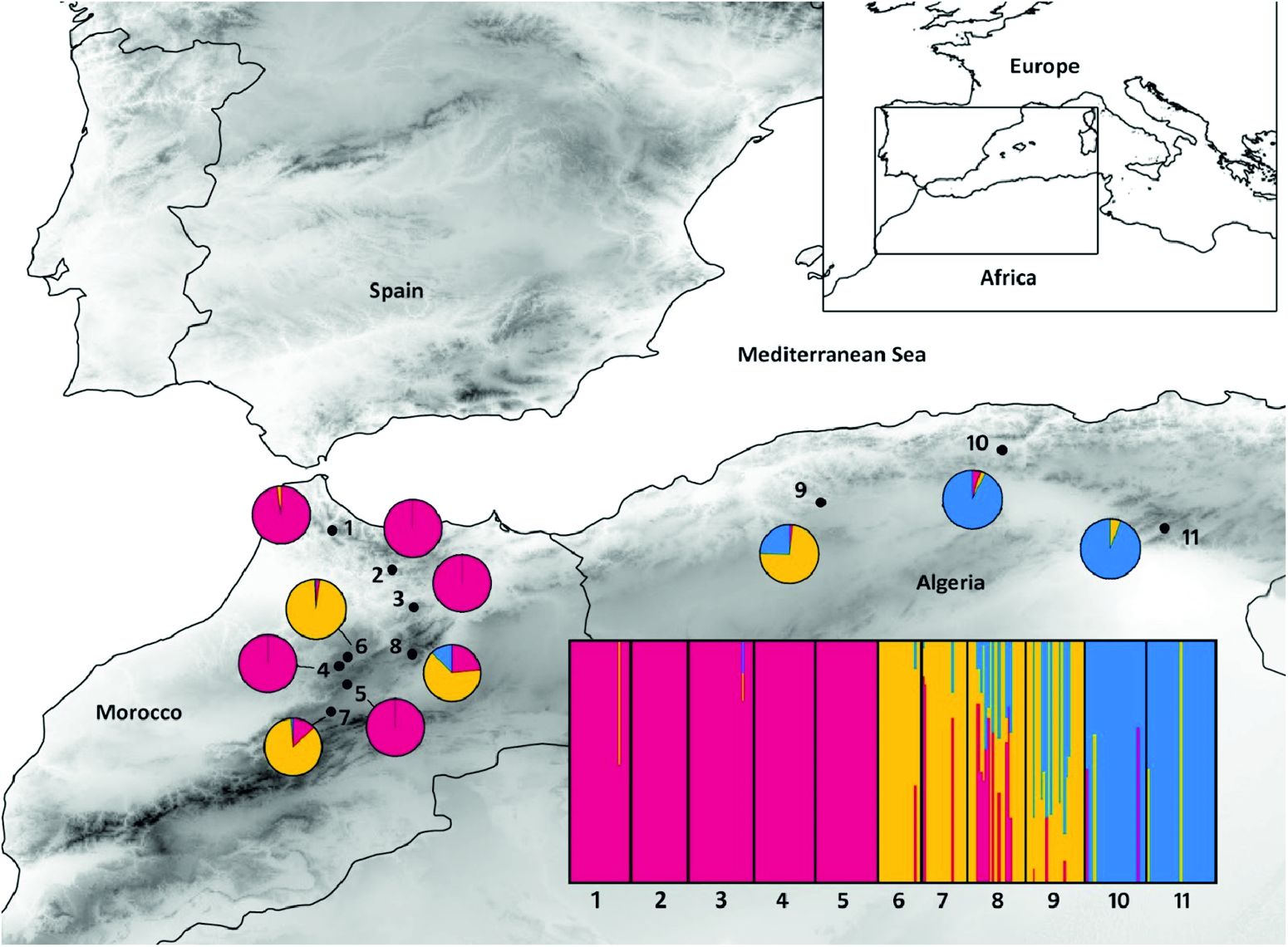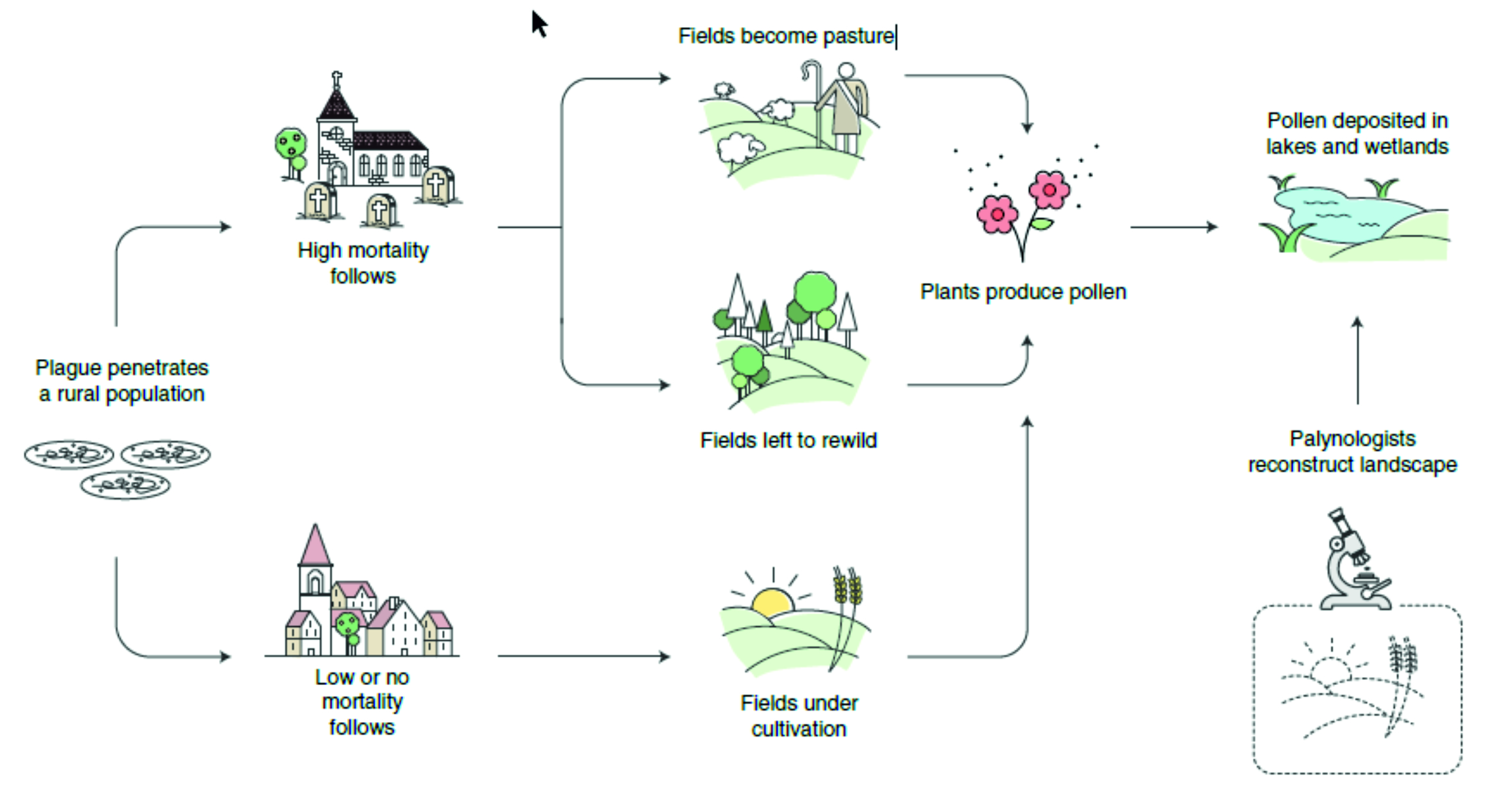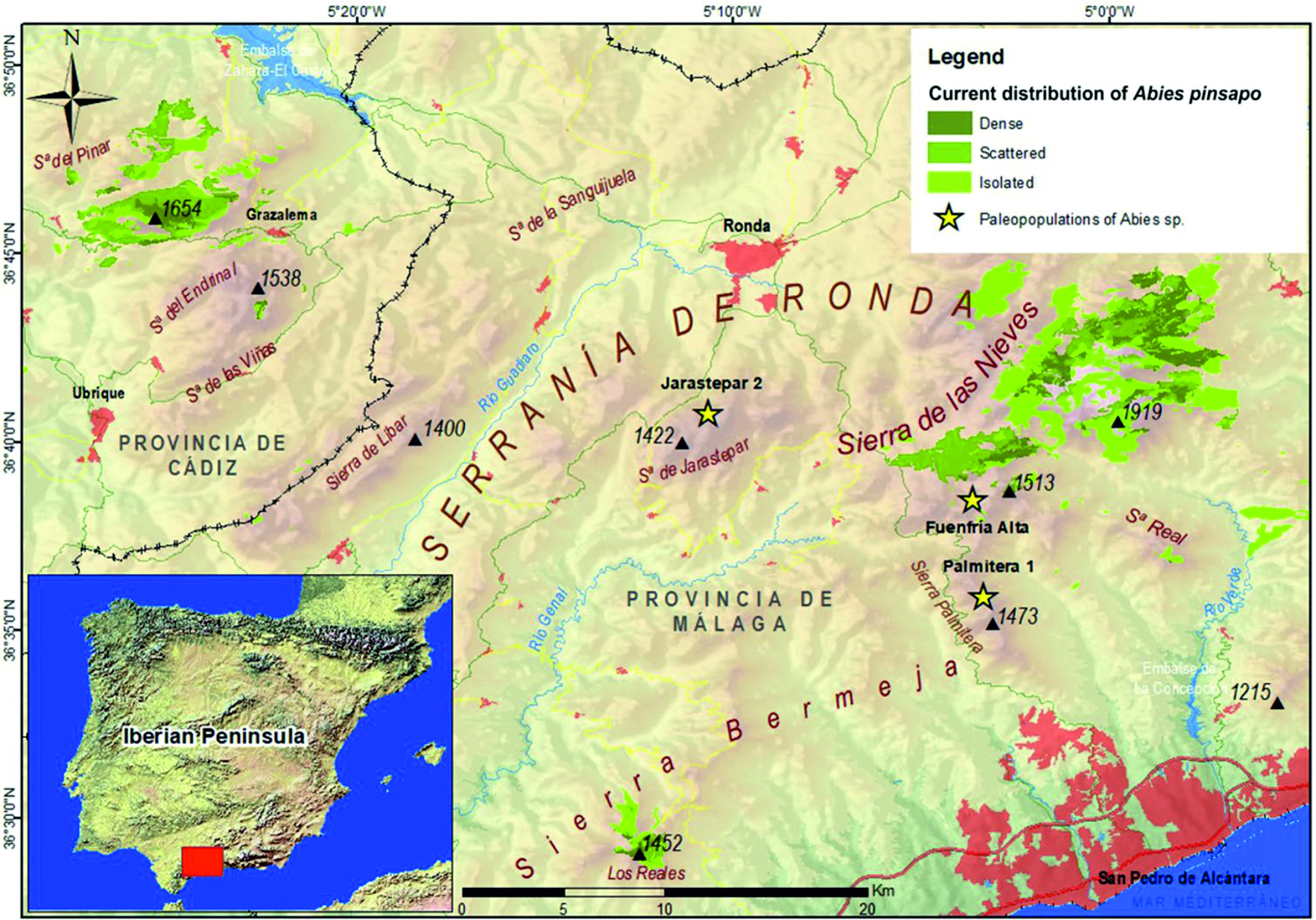Our research approach
We combine three main research tools to study mediterranean ecosystems...
Paleoecology
Paleoecological analysis provide valuable information on species and community changes through time.
Phylogenetics
Phylogenetic analysis inform on the relationship between species and populations, as well as their demographic changes.
Ecoinformatics
Independent and spatially explicit evidence to contrast and complement paleoecology and phylogenetics.
Publications
Our lattest publications...
Spatially explicit assessment of genetic variation to inform conservation effort for an endangered Mediterranean conifer, Cedrus atlantica
Preserving the genetic diversity of forest species is critical for maintaining their adaptive potential and allowing for generation turnover in forest ecosys...
Palaeoecological data indicates land-use changes across Europe linked to spatial heterogeneity in mortality during the Black Death pandemic
The Black Death (1347–1352 ce) is the most renowned pandemic in human history, believed by many to have killed half of Europe’s population. However, despite ...
Biological Interaction as a Possible Ultimate Driver in the Local Extinction of Cedrus atlantica in the Iberian Peninsula
The presence of Cedrus atlantica on the European continent, including, especially, the determination of the time of its disappearance from the Iberian Penins...
The history of Abies pinsapo during the Holocene in southern Spain, based on pedoanthracological analysis
The aim of this research is to reconstruct the ancient distribution area of Abies pinsapo Boiss. (Spanish fir) in the Serranía de Ronda region, southern Spai...
Projects
The most recent projects...
















